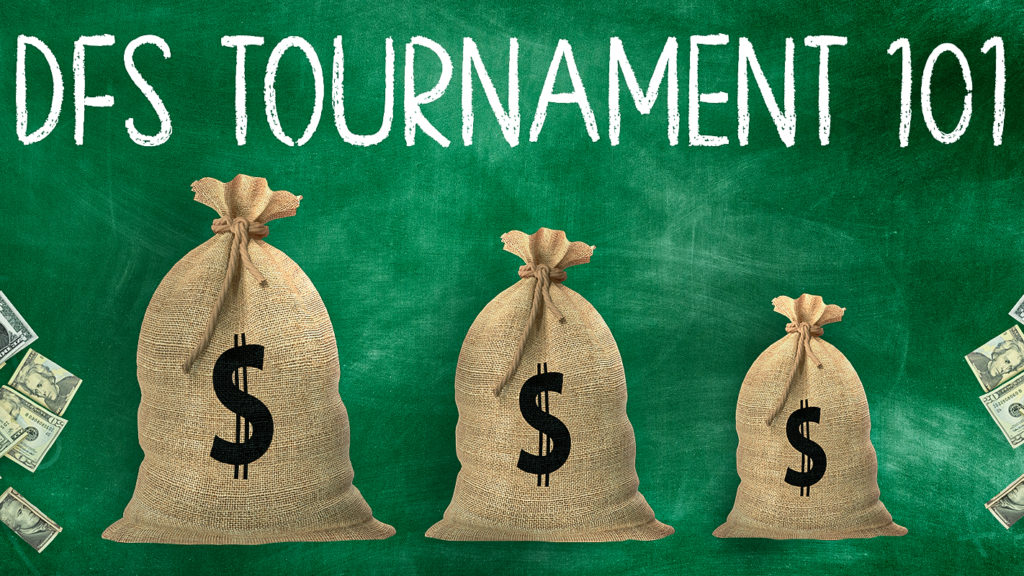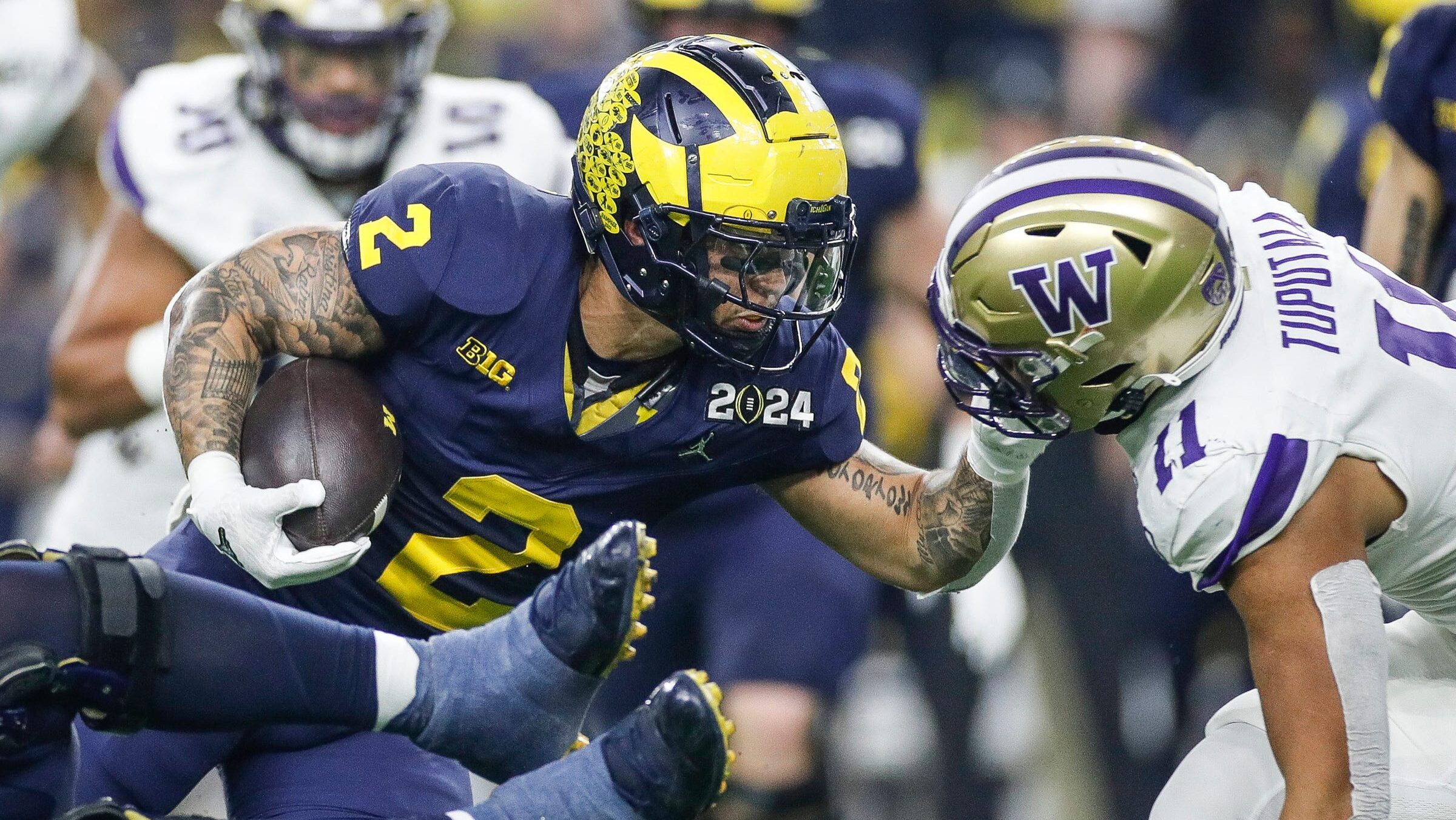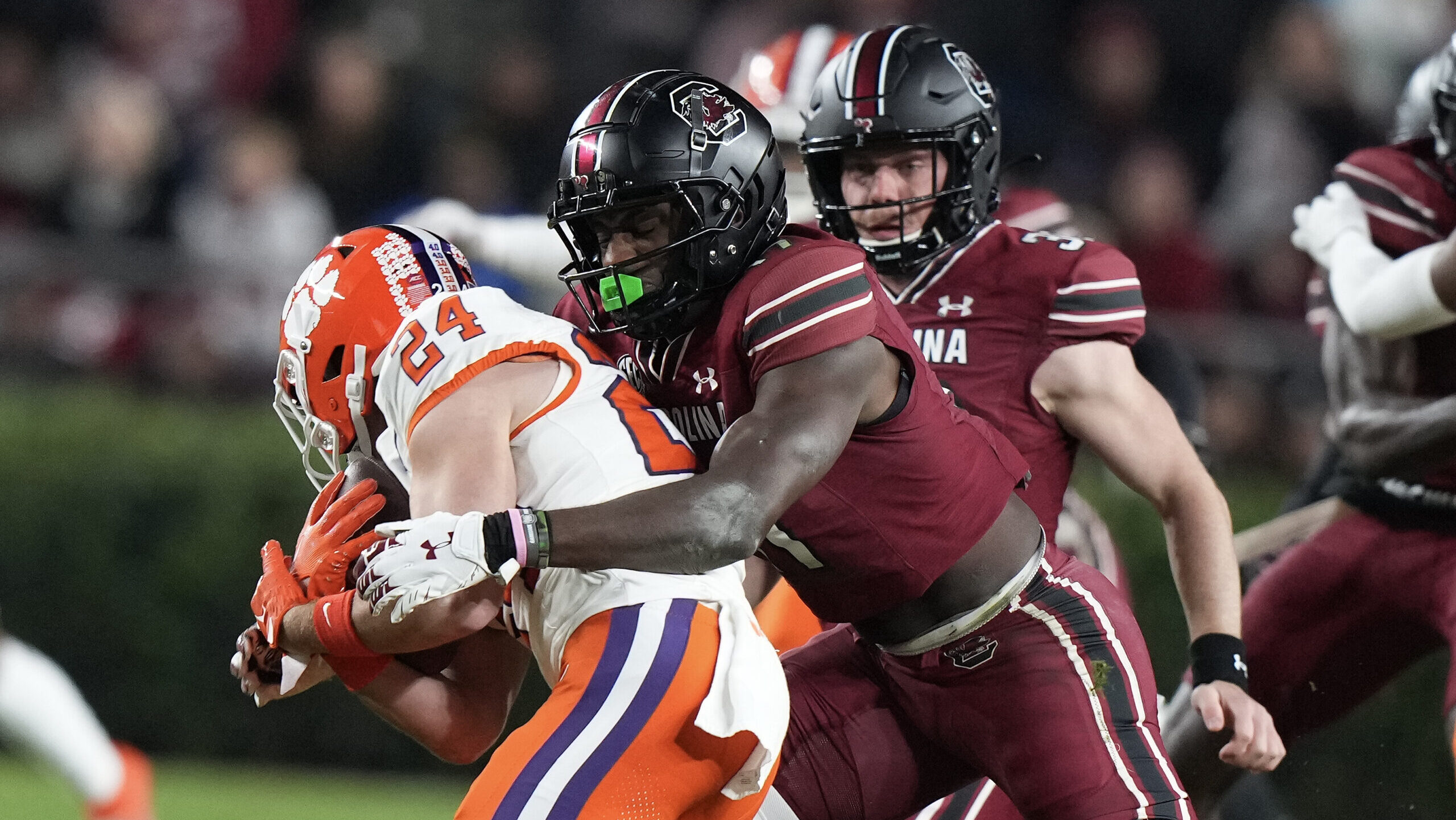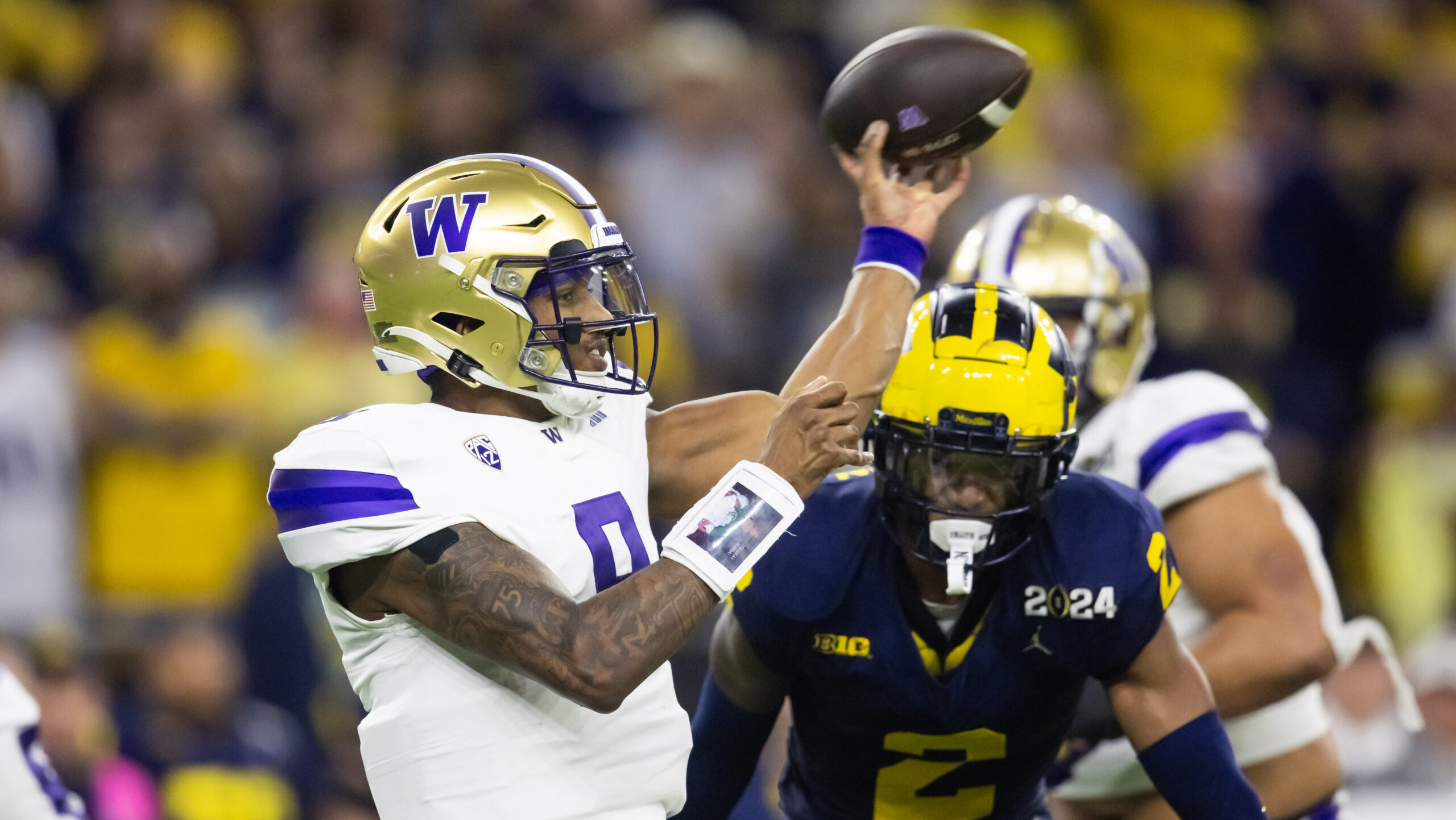Fantasy
7/31/22
5 min read
Daily Fantasy Football Tournament 101

Daily Fantasy Football can be overwhelming with terms the casual player might not fully grasp. I was once in those shoes and now plan on guiding you to become a better player throughout this series. Here are the main differences between the two main companies and the terms you will see no matter where you get your content.
DraftKings vs. FanDuel
Both companies have the same lineup construction for full lineup slates, 1 QB, 2 RB, 3 WR, 1 TE, 1 FLEX, and 1 D/ST. There are a few unique differences between the two sites. For starters, DraftKings has more scoring than FanDuel. DraftKings rewards a point per reception, while FanDuel only gives half a point per reception. So a wide receiver that catches more passes is more valuable on DraftKings.
In addition, DraftKings has yardage bonuses based on the statistic, while FanDuel does not. DraftKings has yardage bonuses based on the statistic, while FanDuel does not. Players that throw for over 300 yards will get an additional three points, as well as any player with over 100 yards rushing or receiving.
Each player is given a salary, and DraftKings allows a $50,000 total salary per lineup. However, FanDuel gives you $60,000, making it much easier to construct lineups on FanDuel. Generally, FanDuel makes up for the salary difference by pricing their players up, but DraftKings priced up players, making it more difficult to build lineups. For example, Tom Brady could be $8,300 on FanDuel and $8,000 on DraftKings. FanDuel gives you $1,000 extra per player, making it more affordable to play Tom Brady on their site.
DraftKings does put their minimums at each position much lower than FanDuel; for example, the minimum-priced TE on FanDuel is $4,500, while on DraftKings, it could be as low as $2,500. Every week price fluctuates, and it takes a bit for both companies to price up players that perform at an elite level early in the year.
Daily Fantasy Football Glossary
All the content you will be consuming for Daily Fantasy Football will have these words appear and are considered the industry’s basics.
Bankroll: The amount of money you have available to play with on a given week. You should be sticking to 20% of your seasonal bankroll each week, and when starting, play lower-sized contests while you get used to building lineups. We will talk more about that in a future article in the series.
Chalk: Refers to the most rostered player on a given slate. For example, Derrick Henry would be considered chalk if he was the only player coming in at 43% rostered.
Leverage: This is a concept in which you pick a stance in a specific situation to gain an advantage in the contest you are playing.
For example, Derrick Henry at $9,000 against the Jaguars is the most popular player coming in at 43% rostered. In a 20-entry max contest, you can gain leverage by playing him in 60% or more lineups or completely fade him and be different than 43% of the contest.
If Henry has a great game and you played him in 60% of your lineups, you will gain leverage on 57% of the field that did not play him. If he has a bad game, you will have 60% of your lineups fighting to make any money at all. With how expensive he was, it becomes tough to beat the 57% of the field that did not play him and have the salary to play another elite player. When a sub $4,000 player is coming in popular, they would have to score less than eight points to hurt the lineup you have from making money. I dive further in-depth into this concept later on in the Tournament Rostership article.
Rostership: The percentage of lineups that contain a specific player. Rostership is based on 150-max-entry contests that include a big pool of contestants. Therefore, rostership varies between 150-max-entry contests and single-entry contests. For example, Josh Allen might be 12% rostered for the Milly Maker contest. However, for a single-entry contest, he could be 20% rostered.
Slate: A schedule of games that provides the player pool for you to choose and contests you can play. For example, the main slate usually contains the biggest contests and every NFL game from 1 pm to 4:25 est. Put another way, the main slate will generally include all NFL games for that week aside from the three primetime games.
Stacking: A lineup construction strategy involving playing multiple players on the same team. For example, this week, I will be stacking Patrick Mahomes and Travis Kelce.
Tournament/GPP: A contest where the top finishers get a significant portion of the money. GPP stands for a guaranteed prize pool and can result in tremendous leverage if the contest does not fill up. Usually, around 20% of these contests get paid out, but the top prizes control most of it. For example, on DraftKings, there is a Milly Maker contest containing 547,500 people; however, only 23% will make money, and first place wins $1,000,000, but tenth place wins $50,000.
Value: The projected amount of fantasy points for a given player relative to his salary. It’s common to divide the salary by 1,000 so that the number appears in an easy-to-read decimal. For example, Chase Edmonds is $5,000 this week and projected 15 points, and his value would be 3.0.







